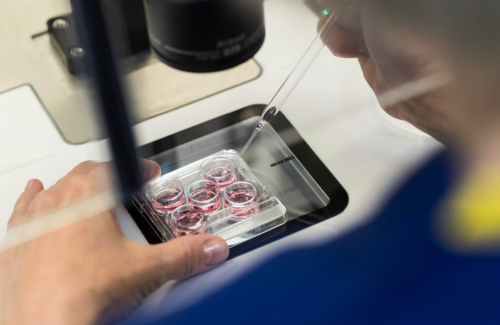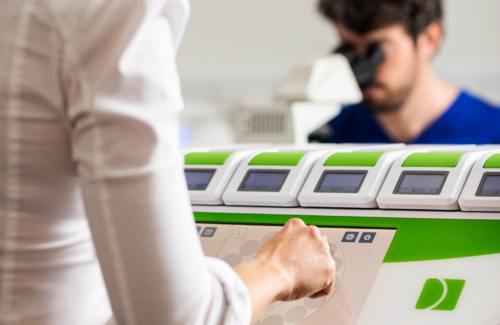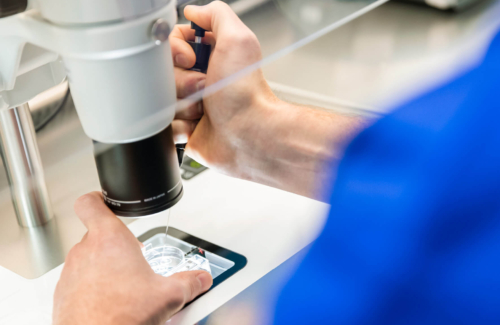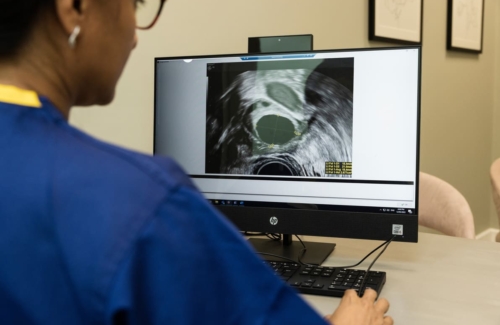male infertility Male fertility: half the equation
We consider male fertility right at the start of every patient journey, because out of the 1 in 7 couples experiencing problems conceiving, 50 percent of cases are due to male factor infertility.
What is male infertility?
Male infertility can be a result of physical, hormonal, genetic, or immunologic problems, a chronic illness or a sexual condition preventing semen from being deposited in the vagina.
Most of these issues can result in no direct symptoms, and many couples try for years before seeing a fertility specialist, making male infertility sometimes the last diagnosis for a couple trying to conceive.
Diagnosing infertility in men
As there are a number of factors that can impact male fertility, the best way to identify which of these you may be experiencing is to have a full male fertility test.
At The Evewell we offer a full consultation and analysis to discuss your situation and options, to maximise your chances of conceiving your own biological child, including:
- Blood and urine tests
- Genetic testing
- Sperm analysis, retrieval and freezing
Causes of male infertility
Unlike female infertility, usually there aren’t many signs of infertility in men, which means very often men can experience issues with their fertility without even knowing.
Male infertility causes are usually related to the quality or quantity of sperm in the semen. It may be that:
- Sperm may not be sufficiently motile (how they swim)
- Sperm may be the wrong shape (morphology)
- There may not be enough sperm in semen (low sperm count)
- There is no sperm in semen – a condition called azoospermia
When trying to understand male infertility, usually it comes down to either medical, lifestyle or environmental factors, so there a few different avenues you can explore.
Medical causes include:
- Testicular damage
- Ejaculation disorders
- Chromosomal or genetic causes
- Undescended testes
- Hormonal problems
- Sperm antibodies
- Infection
- Tumours
How The Evewell can help you with male infertility
What makes us unique at The Evewell is that we consider male fertility right at the start of every patient’s journey. Our mission is to identify the reason for a couple’s difficulties in conceiving, so we have designed our centres and your journey considering both male and female patients.
We offer a range of treatments to maximise your chances of conceiving your own biological child. Our expert team will analyse your sperm and make recommendations, if necessary, for further treatment or considerations.
If you have any concerns or are experiencing male infertility and would like to arrange a consultation, please get in touch with us to see how we can help.












